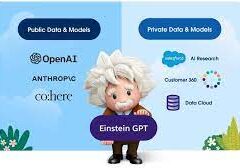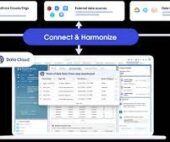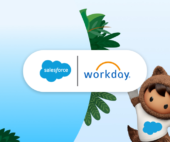Here is a helpful glossary of terms you will encounter when discussing Salesforce for Marketing. Salesforce Marketing Acronyms
Salesforce Marketing Acronyms
| Acronym | Meaning | Defintion |
| ABM | Account-Based Marketing | A marketing strategy popular in B2B Marketing, where there are typically long sales cycles with multiple stakeholders influencing a purchasing decision. ABM focuses on prospects at an organization level, meaning that marketers set out to target specific personas in the organization, for example, the Sales Director will receive something different compared to the CFO because they don’t share the same motivations, and experience different pain points. ABM may seem simple enough in definition but the reality becomes increasingly complex once you begin mapping out your strategy. |
| AMPSEA | Allow Multiple Prospects with Same Email Address | An Account Engagement (Pardot) feature. Marketing automation platforms typically use email addresses as the unique identifier in the marketing database – AMPSEA in Pardot changed that! Now that AMPSEA is the norm, the unique identifier for prospects is CRM ID. This gave marketers the ability to add multiple prospects that use the same email address to Pardot, ultimately able to market to them as if they were separate individuals. |
| B2B MA | B2B Marketing Analytics | An Account Engagement (Pardot) add-on product. The one-line pitch is: “the analytics app built for the B2B marketer”. In short, Pardot data (such as email engagement, visitor data), is packaged up and sent into the Tableau CRM platform for visualization and exploration. B2BMA is designed to ‘plug-in-and-play’ and comes with Dashboards, Lenses, and Datasets out-of-the-box to empower the non-technical marketer. |
| BU | Pardot/Marketing Cloud Business Unit | Salesforce Marketing Cloud and Account Engagement (Pardot) have their own features that share the same name. Account Engagement Business Units are separate databases within a single Pardot account that allow you to partition prospects, campaigns, and assets. A common example is an enterprise organization that serves multiple geographies. |
| CA360 | Customer Audiences 360 | The retired name of Salesforce’s CDP offering, now Data Cloud. |
| CCA | Conditional Completion Actions | Completion actions are one type of Account Engagement (Pardot) automation. Conditional completion actions fire only when the prospect making the activity meets certain criteria. When the rule criteria matches (“is true”, “equals value X” etc.) then the completion action will fire. |
| CLV | Customer Lifetime Value | The metric that measures the revenue gained from a specific company once they became a customer – in other words, the total monetary amount from all ‘closed won’ sales opportunities in Salesforce, related to the account. (Related to LTV, lifetime customer value.) |
| CSAT | Customer Satisfaction | Use customer satisfaction (CSAT) surveys to gauge customer experience. In a CSAT survey, the customer is asked something along the lines of: How would you rate your overall satisfaction with the service you received? Answer choices are graded on a scale, usually from 1-5, where 1 represents very dissatisfied and 5 represents completely satisfied. The responses of your customers are then averaged and the result becomes your overall CSAT score. |
| CTA | Call To Action | The action you are encouraging your users to take when interacting with your marketing assets, such as emails, website pages, landing pages, or files. The idea is to tempt them with an eye-catching, irresistible button or hyperlink text, so that they “convert” by sharing their information/indicating their interest. |
| CTR | Click-Through Rate | Click-through rate is the % of prospects that clicked within your email, out of the whole send list. This is a popular metric it (mostly) proves that prospects are taking the account you intended, whether that be downloading a file, or visiting a landing page. |
| DE | Data Extension | Data extensions exist in Marketing Cloud to “satisfy the need for flexible data storage”, enabling you to essentially build a table within the app database that contains your data, exactly how you need to structure it. There are different types of data extensions, including: standard, filtered, random, sendable/non-sendable, shared. Note: A data extension can possess more than one of these characteristics. |
| DMP | Data Management Platform | Captures data from any source and device. Analyze billions of profiles and trillions of events to find new high-value segments in order to do 1-to-1 ad targeting across any device the individual uses. |
| DNE | Do not email | Do not email is a field in Account Engagement (formerly Pardot). This is for marketing suppression, to prevent specific prospects from receiving emails globally (i.e. stopping prospects from receiving any emails being sent from the org). This is intended for admins/marketers to use (versus the prospects themselves). |
| DNT | Do Not Track | A feature of Account Engagement (Pardot) that when enabled, prevents activities from being captured (page, form and landing page views, file downloads, custom redirect clicks) and recording them in another system, i.e. Account Engagement. When a user chooses to use Do Not Track (DNT), to opt-out of tracking by websites, it’s a preference that’s applied to all websites. |
| DTR | Datorama | Now known officially as “Marketing Cloud Intelligence”, Datorama is the marketing intelligence platform that provides its users with the capability of connecting their entire MarTech stack (standalone from the main SFMC platform). Datorama Reports are powerful and flexible, giving you detailed analysis of emails, push notifications, and journey data at a campaign level. |
| ECS | Einstein Content Selection | ECS is an email experimentation tool that selects the most engaging content (images) for each subscriber based on the rules you define, subscriber attributes, and what’s been popular in the past. Einstein Content Selection in Marketing Cloud is part of Content Builder – let Einstein take care of the selection! |
| EEF | Einstein Engagement Frequency | Einstein Engagement Frequency evaluates your contacts and subscribers, and identifies the optimal number of email messages to send. |
| EFTP | Enhanced File Transfer Protocol | “All Marketing Cloud editions include an SFTP account, or ‘Enhanced FTP’ where data files can be imported to, or exported from. And SFTP is widely regarded today as the de facto protocol for secure file transfer.” |
| EID | Enterprise ID | The ID of the topmost parent business unit in a Marketing Cloud instance. |
| ENS | Event Notification Service | Sends you notifications when certain events related to you occur in Marketing Cloud such as when a Transactional Email is sent or when an email gets open (regardless of its classification). |
| EPC | Email Preference Center | A page prospects/customers use to select which topics they want to be emailed about – a preferences pick n’ mix! Prospects land on when they click “update email preferences” (or similar) from an email. |
| ES | Engagement Studio | An Account Engagement (Pardot) feature. Offers advanced segmentation and automation tools that mean you can produce email nurture campaigns that can be effective at all stages of the customer journey. Why it’s so attractive is its visual, intuitive user interface – essentially, you map out the campaign steps onto a blank canvas. |
| ESP | Email Service Provider | The software that organizations purchase to create, send, and report on email marketing. Marketing automation platforms are ESPs with much more additional functionality. |
| FTP | File Transfer Protocol | This is essentially the way that files can be transferred from one location, to a destination. This term appears in the content of Marketing Cloud, with Marketing Cloud being either the location or the destination. See also: EFTP, and SFTP (which are interchangable). |
| GPC | Global Privacy Controlled | “The tracking and consent API provides functions for each step in the page view tracking process, giving you control over how Account Engagement tracks page views.” (source) The API records the global privacy controlled (GPC) browser signals for prospects/visitors that have opted out of the sale of their personal info. |
| IDV | Identity Verification | “A Salesforce Marketing Cloud security setting that authenticates the browser or app used to access the application… Marketing Cloud plans to retire IDV for existing users in the future. [They] recommend enabling multi-factor authentication (MFA) for your account.” (source) |
| IERs | Individual Email Results | IERs stored Marketing Cloud email analytics in Salesforce. Marketers can send emails from SFMC, and the email analytics are captured in IERs, visible from the Salesforce UI. |
| IPR | Inbox Placement Rule | The preferred metric when measuring deliverability, which is the % of emails that ended up in inboxes where they are actually going to be seen, compared to spam rate, which indicates emails ending up in the spam or junk folders. |
| LTV | Lifetime Value | The metric that predicted revenue from the lifespan of one customer, i.e. the average total monetary amount from all ‘closed won’ sales opportunities in Salesforce, related to accounts. You could have a single benchmark LTV, or have multiple benchmarks for different types of customers. (Related to CLV, customer lifetime value.) |
| MCAE | Marketing Cloud Account Engagement | While Salesforce have advised against using this abbreviation, you’ll find mentions of this acronym around. Pardot, a Salesforce marketing automation tool, was renamed Marketing Cloud Account Engagement in 2022 in a move to make products more easy for laymen to understand. |
| MC Connect | Marketing Cloud Connect | The connector between Salesforce Marketing Cloud and the core platform (ie. Sales Cloud, Service Cloud, etc). Gives marketers the ability to utilize the data from their Salesforce standard and custom objects, right within Marketing Cloud. Some of the best use cases for using Salesforce data within Marketing Cloud use Journey Builder, which allows for amazing customization and automation of guided messaging and updates for your target audiences. |
| MCP | Marketing Cloud Personalization | MCP (formerly Interaction Studio) is Salesforce’s real-time personalization and interaction management solution. This means giving organizations (especially marketers) the ability to promote relevant products and services to their customers and prospects across channels like web, email, and mobile in real-time with offers specifically and uniquely for them. |
| MID | Marketing Cloud ID | The ID of a Marketing Cloud instance. “Use this information to properly configure a Web Collect URL or obtain the appropriate URL endpoint for use with SOAP Web Services API, FTP, and other functionality”. (source) |
| MQA | Marketing Qualified Account | ABM (above) is a marketing strategy popular in B2B Marketing, where there are typically long sales cycles with multiple stakeholders influencing a purchasing decision. While MQL is related to the extent that an individual is likely to purchase, MQA applies this at the account level. This can be calculated in a number of different ways – from rolling up field data (such as engagement scores) to sophisticated behavior and demographic measurements. |
| MQL | Marketing Qualified Lead | Any prospect who has actively interacted with your company and expressed interest in your marketing materials. Traditionally, MQLs are viewed positively by sales and marketing teams because they represent the potential, the ones who’ve ‘taken the bait’. |
| PLA | Pardot Lightning App | The Pardot Lightning App brings Pardot (now Account Engagement) into the Salesforce Lightning Experience (LEX). Over time, Pardot Lightning has not only applied to just the user experience (UX), but also to Pardot’s infrastructure (the data model – technically, under the hood). Although the product name ‘Pardot’ has been retired, you may still come across references to PLA. |
| OSP | Object Sync for Pardot | An Account Engagement (Pardot) feature. Pardot has made big moves to transform the marketing assets we manage in Pardot (forms, emails, landing pages, campaigns) into Salesforce records. What this has meant is that marketing assets have to sync from Pardot to Salesforce (and vice versa) through the Salesforce Connector, just like Prospect records do. |
| ROAS | Return on Advertising Spend | A term used beyond Marketing Cloud. See this metric featured in the Segment Intelligence for Data Clouddashboard. |
| RTIM | Real-Time Interaction Management | With more data streams available to marketers, and more powerful tools to process the data, RTIM is a sector of the market that’s heating up. This gives organizations (especially marketers) the ability to promote relevant products and services to their customers and prospects across channels like web, email, and mobile in real-time with offers specifically and uniquely for them. Marketing Cloud Personalization (formerly Interaction Studio), is Salesforce’s RTIM solution. |
| SAL | Sales Accepted Lead | Any prospect who has been deemed qualified by the marketing team before they are sales qualified. It’s therefore the stage in between MQL and SQL, where the sales team is saying “yes, we will work on this lead”. |
| SDE | Shared Data Extension | Share data extensions with other business units in your Marketing Cloud instance. To do so, move data extensions into the main Shared Data Extensions folder or a subfolder under Subscribers. |
| SFMC | Salesforce Marketing Cloud | Salesforce Marketing Cloud is a mouthful to say! With other vendors also having a ‘marketing cloud’ in their offering (Oracle), it’s beneficial for us to always specify we are referring to Salesforce’s. SFMC it is! |
| SFTP | Secure File Transfer Protocol | “All Marketing Cloud editions include an SFTP account, or ‘Enhanced FTP’ where data files can be imported to, or exported from. And SFTP is widely regarded today as the de facto protocol for secure file transfer.” |
| SQL | Sales Qualified Lead | Any prospect who has been deemed qualified by the sales team. Not only has the prospect expressed interest, they are a good fit to use your product/service, are ready to buy, and/or have the budget (see: BANT). |
| SSOT | Single Source of Truth | The ‘holy grail of data strategy, a single source of truth gives you one view of each person, unifying their data across all of your databases. |
| STO | Send Time Optimization | Send Time Optimization taps into AI to determine when Marketing Cloud/Account Engagement (formerly Pardot) emails should be sent based on past engagement data from your database. The idea behind it is that by optimizing the time the email is sent, your audience is most likely to open and click. |
| VAC | Visitor Association Change | Pardot feature. “In prospect audits, you may occasionally notice entries with Type = Visitor Association Change, followed by a link with the name of another prospect…a VAC happens when one prospect’s visitor record and activities become associated with a different prospect.” (source) |
| WAC | Web Analytics Connector | “Use the Web Analytics Connector to extend your web analytics service to track and analyze data from your Marketing Cloud sends.” (source) You can record link activity (i.e. clicks) at different levels: Account, Email (activity from that particular email send), Subscriber, or Link (the individual link itself, if you want to get granular!). |













